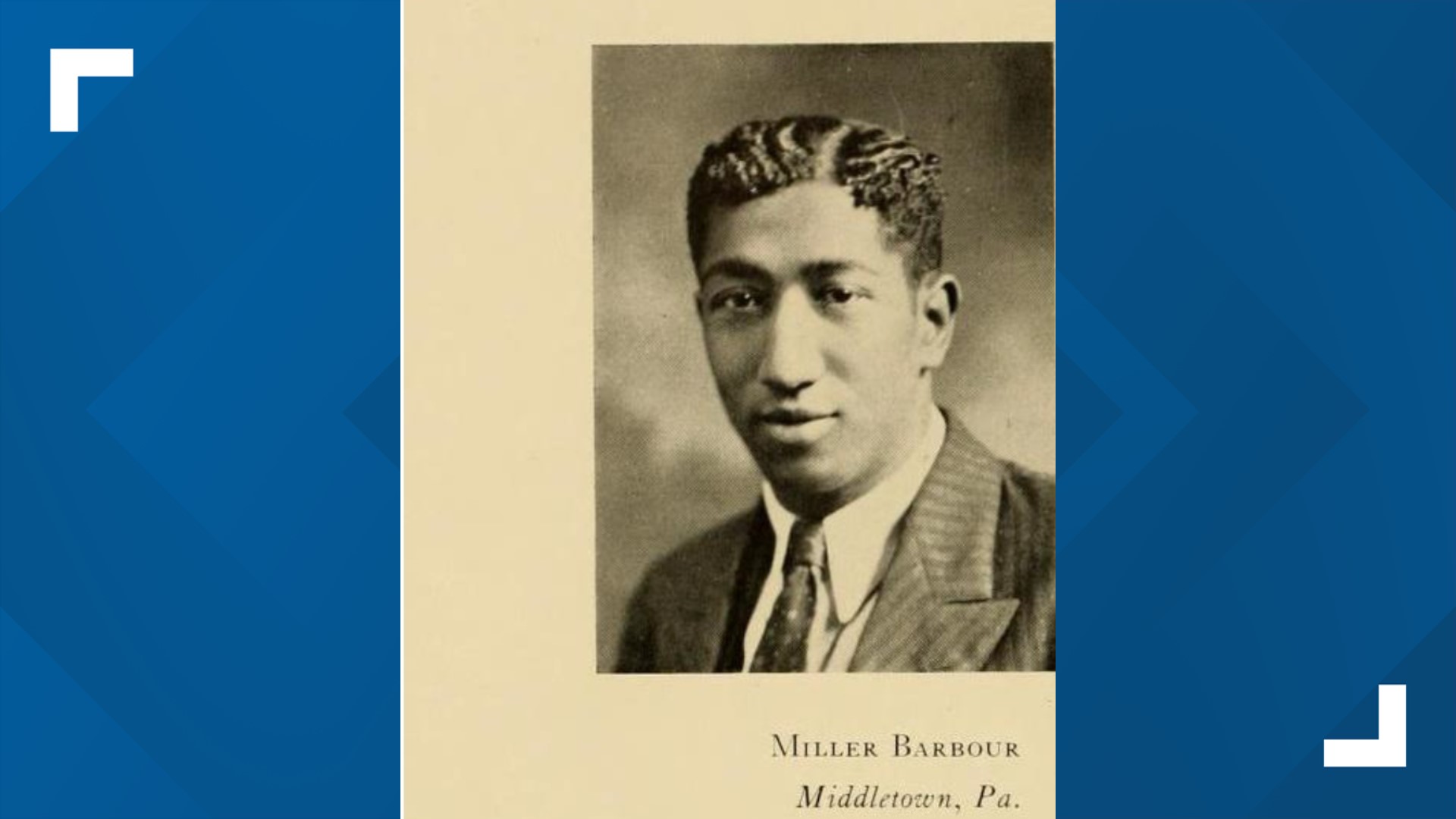LANCASTER, Pa. — William Miller Barbour, originally from Middletown Dauphin County, was one of the first African Americans to graduate from Elizabethtown College in Lancaster County in 1932
He would later attend graduate school at the University of Pennsylvania before becoming an activist.
Due to poor record keeping and his death at an early age, much of Barbour’s story was lost to time until a few years ago.
Jean-Paul Benowitz, the director of Prestigious Scholarships & Fellowships and Public Heritage Studies said Barbour’s rediscovery was accidentally made by the college’s archivist.
“We had a football team for just one year in 1928 and while doing research on the football we noticed a photograph that there was an African American student and he wanted to know more about who this student was, so we just started paging through the yearbooks till he found Barbour,” Benowitz said.
The finding sparked the beginning of the W. Miller Barbour Research Project.
Heading the project is Jean-Paul Benowitz. Abigail Sholes, Peter DuPuydt, and Eric Schubert, who are involved in the research and genealogical reports.
“What’s really drawing to us is just how far-ranging Barbour’s work was, especially in the civil rights movement before the 19-60s and the march on Washington, so he was doing later work before that was even occurring,” Schubert said.
“Many of the ideas behind the civil rights movement, you could see that they are found in his writings, his presentations, and it really is about socio-economic development,” Benowitz added.
Barbour worked as a social worker throughout the 1940s before accepting a leadership position for the National Urban League, a historic civil rights group dedicated to economic empowerment.
He strategized using Hollywood celebrities’ notoriety to advocate for racial desegregation, a pioneering practice for the time.
He died in 1957 at 48 years old.
“Barbour was passionate about everything, and I think that sort of zest, especially as it relates to these topics, makes a really unique story,” Schubert said.
“Ultimately it will be published as an article in a peer-reviewed journal,” Benowitz noted.
The research team expects to publish its findings by the college’s 125th anniversary in spring 2024.
To listen to a recent podcast with the team, click here.

